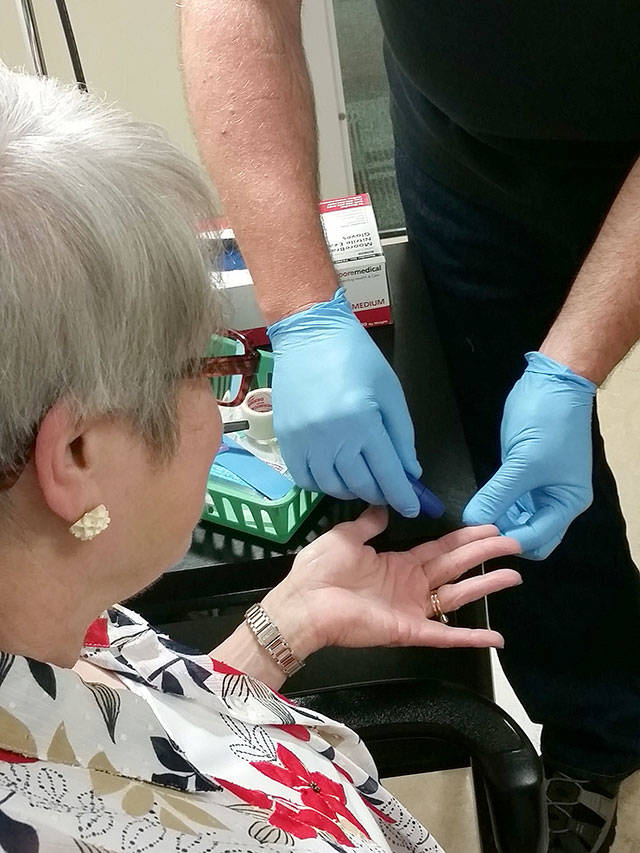The liver is one of the largest organs in the body. Although considered part of the digestive tract, it supports just about every other organ and performs hundreds of complex functions critical to life. (See sidebar.)
Diseases that damage the liver and prevent it from doing its job can be life-threatening. Causative agents include toxins (such as excess alcohol or acetaminophen), genetic abnormalities, abnormalities of the immune system and infections. Among the most common infectious causes of liver disease are the hepatitis viruses: Hepatitis A, Hepatitis B and Hepatitis C.
Hepatitis A
The Hepatitis A virus (HAV) is spread by the fecal-oral route, meaning that the infection is spread when the feces from an infected person are somehow ingested by another person. Contaminated food and water are not uncommon vehicles for HAV and outbreaks of Hepatitis A have been linked to contaminated vegetables, fruit, shellfish and other foods. HAV also can be spread directly from a person with Hepatitis A who fails to wash his or her hands properly after going to the bathroom.
Although HAV infection usually is self-limiting, illness can last 8 weeks or more. Signs and symptoms include fatigue, flu-like illness, dark urine, pale stools, abdominal pain and yellow skin and eyes. Chronic infection with Hepatitis A is rare.
What can you do to protect yourself? Since Hepatitis A is spread by the fecal-oral route, eating food from safe sources will help prevent this infection. Practicing good hand hygiene – including thoroughly washing hands after using the bathroom, changing diapers and before preparing or eating food – will also help prevent its spread.
The best way, however, to protect yourself against HAV is vaccination. The vaccine is safe and effective and provides life-long protection against HAV.
Hepatitis B
Hepatitis B virus (HBV) is spread by exposure to blood and certain other body fluids (including semen and vaginal secretions) of an infected person. It can be spread by sharing needles with an infected person and personal items contaminated with their body fluids. It also can be spread through sexual contact and from an infected mother to her baby during pregnancy.
HBV infection can cause signs and symptoms similar to Hepatitis A (see above); however, a substantial proportion of infected persons do not clear HBV and remain chronically infected. Chronically infected persons can remain healthy; however, a significant proportion progress to severe liver disease including liver scarring (cirrhosis), liver failure or liver cancer.
Although acute HBV infection is rarely treated, medications can help fight chronic infections. Treatment does not cure the infection but slows the virus’ ability to damage the liver.
What can you do to protect yourself? To prevent HBV infection, avoid contact with the body fluids of persons who are infected with HBV and those whose health and sexual history are unknown to you. Do not share needles for any reason; use condoms when you have sex; and do not share toothbrushes, razors or other personal items that might be contaminated with body fluids. Like Hepatitis A, Hepatitis B vaccine is the best way to prevent infection. The vaccine is safe and effective and can be combined with Hepatitis A vaccine for life-long protection against both viruses.
Hepatitis C
Hepatitis C virus (HCV) is spread through contact with the blood of an infected person. Before a sensitive test became available to screen the blood supply in 1992, HCV was spread through blood transfusions, a variety of blood products and organ transplants.
Today, HCV is spread primary by sharing needles to inject drugs (and other drug preparation equipment). Less commonly, the infection is spread from an infected mother to her baby during pregnancy, through sexual contact with a person infected with HCV, or by sharing items like razors or toothbrushes with an infected person.
Unlike Hepatitis A and B, most people infected with HCV do not get sick when initially infected; however, the vast majority will not clear the infection, allowing long-term damage to their liver and other cells.
Over time, a substantial portion of persons infected with HCV will develop cirrhosis, liver failure and cancer. Luckily, there are effective medications that can cure chronic HCV infection and clear the body of the virus.
What can you do to protect yourself? There is no vaccination to protect against HCV. Infection can be prevented by avoiding contact with blood of an infected person.
Because something can be done about HCV infection, knowing if you are infected with hepatitis C is important. The Centers for Disease Control and Prevention (CDC) recommends hepatitis C testing for persons with the following characteristics:
• Born from 1945 through 1965 (Baby Boomers)
• Injected illegal drugs, including those who injected even once or a few times many years ago
• Received blood clotting factor concentrates produced before 1987
• Received a transfusion of blood, blood components or an organ transplant before July 1992 (before screening was implemented)
• On long-term kidney hemodialysis
• Infected with HIV
• Have signs or symptoms of liver disease (e.g., abnormal liver function tests)
• Born to Hepatitis C virus-positive mothers
Love your liver! Protect yourself against the hepatitis viruses and get vaccinated, where possible. If you think you may have been exposed to HCV, get tested, and take steps to prevent the spread to others and limit the damage to your liver.
Dr. Jeanette Stehr-Green is a medical epidemiologist and was interim Clallam County Health Officer in 2015. She served on the Clallam County Board of Health from 2003-2016 and has volunteered at Volunteers in Medicine of the Olympics (VIMO) free clinic in Port Angeles since 2008. Dr. Gerald Stephanz is a board certified nephrologist and internist. He is the Medical Director of VIMO and is Chair of the Clallam County Board of Health.



